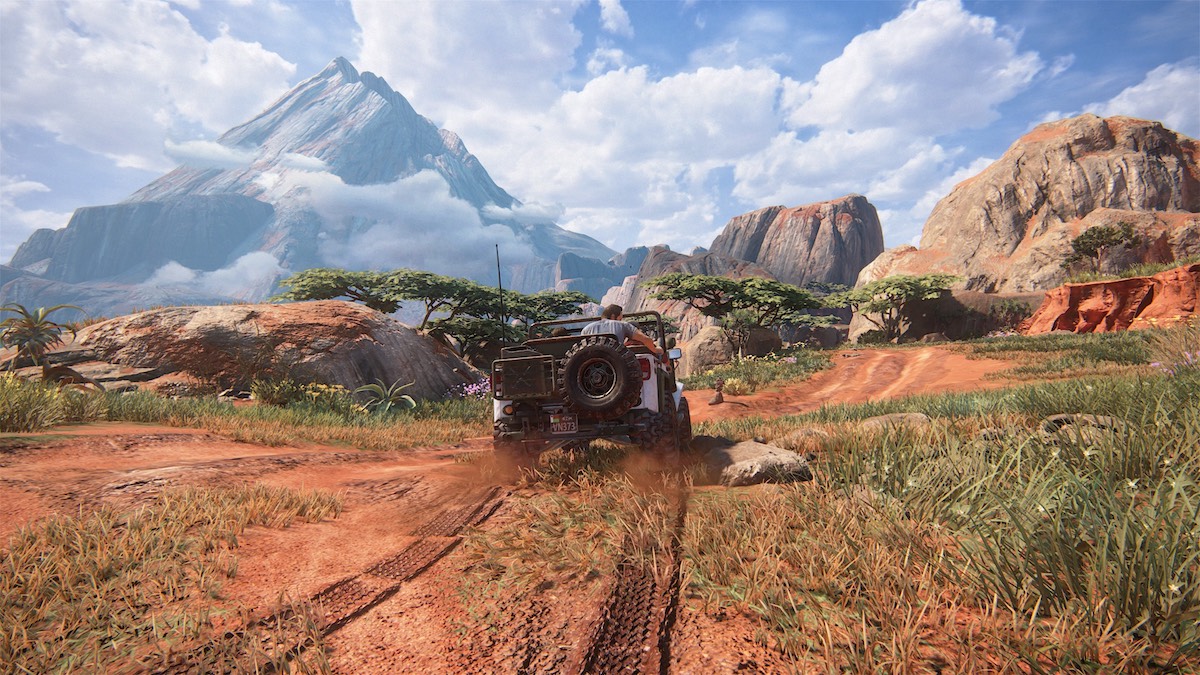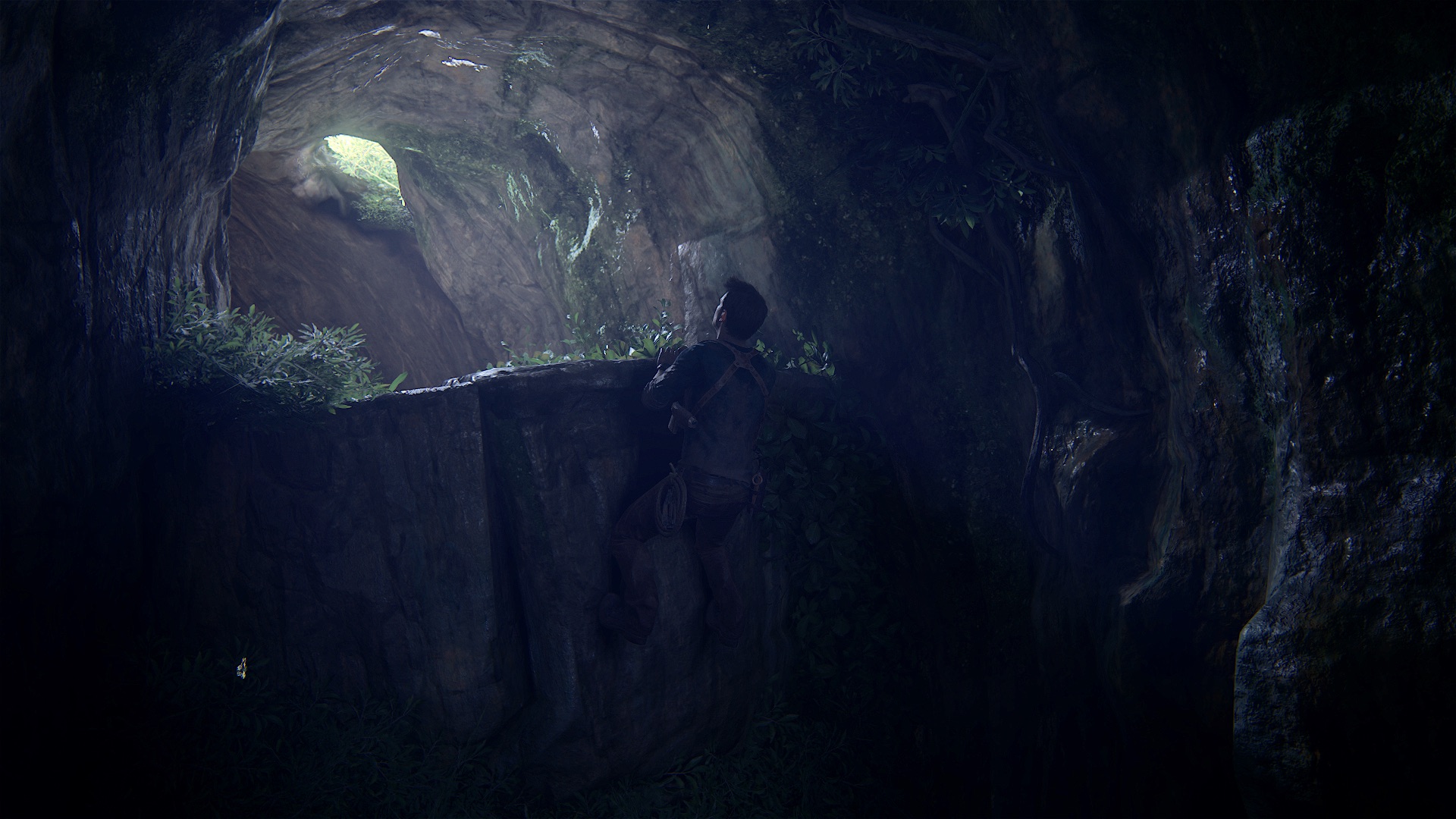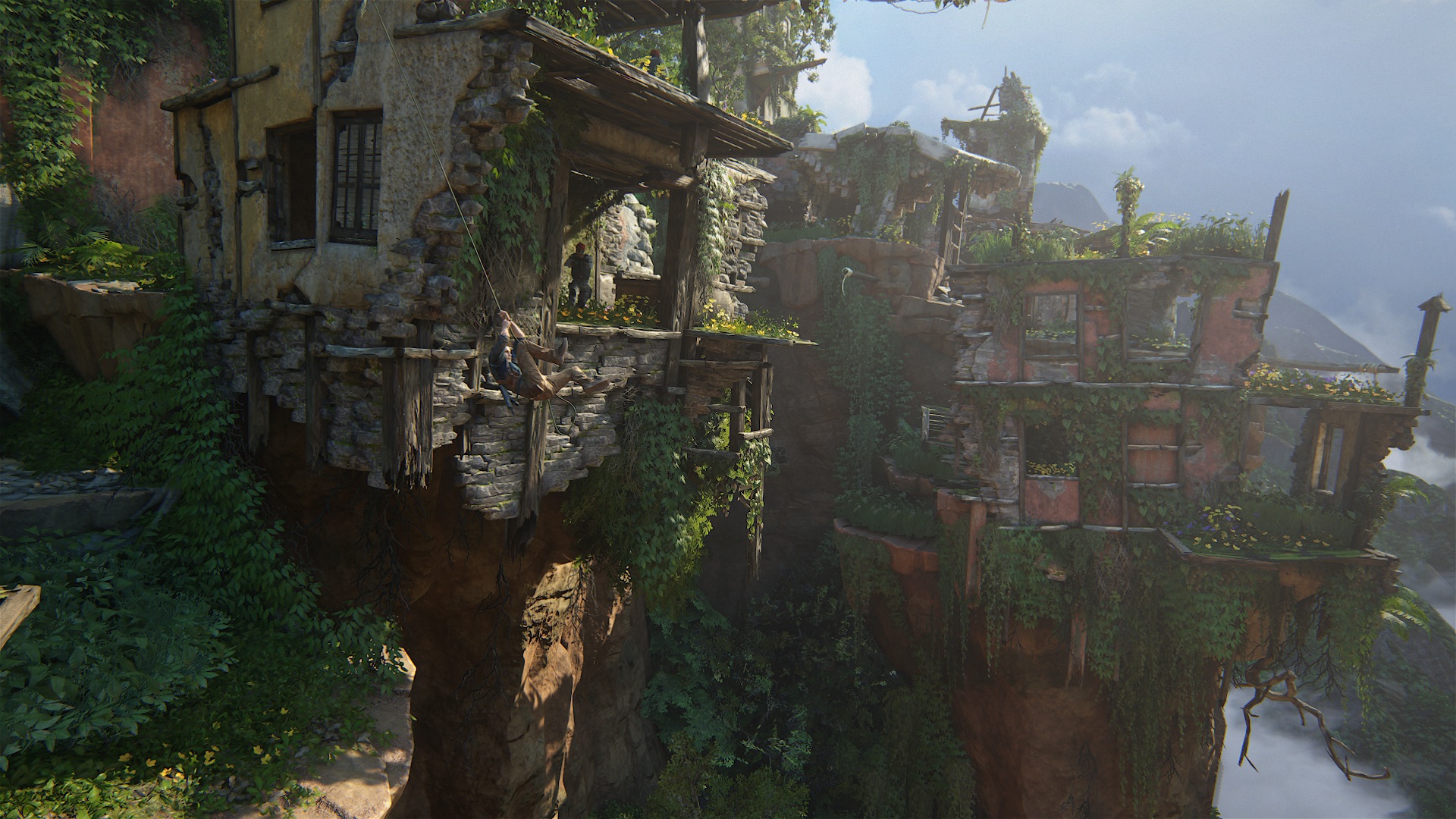
Note: This review contains some plot spoilers.
For as much as I adore Uncharted 4, there is a lot wrong with it.
As I worked my way through Uncharted 4’s campaign, that realization became more and more clear in my mind. The game marks the end of a wildly successful series created by Naughty Dog that quickly became one of the PlayStation 3’s trademark exclusive franchises. The series became known for its gorgeous and detailed visual design, its exceedingly entertaining characters, and its sharp gameplay mechanics. Uncharted 4 is a fitting end to a series that has given gamers so much. Unfortunately, it also appears to be a necessary end to the series, and perhaps even an overdue one.
Now, Uncharted 4 is still a very, very good game, and as such, there is plenty to celebrate here. Experiencing Uncharted 4 is like nothing else in gaming. The attention to detail in every corner of the game is apparent, and the game flows so naturally between traversal, action set pieces and cut scenes (now rendered in real time, making for even smoother transitions) that it feels more like one intentionally planned interactive experience than a traditional video game with level structure. No loading screens are ever seen, and not a single menu ever need be navigated. It absolutely sets the bar for how a single-player adventure should be presented.
Graphically, Uncharted 4 made me feel more immersed and connected to its environments than any game in recent memory. The visual design is arresting in its diversity, its color palates, and its vastness, and I felt compelled to explore every level in full, and to spin the camera around dozens of times just so that I could take it all in. The polish is equally observable in natural environments as it is in Uncharted 4’s gorgeous castles, mansions and other structures. The game is uniformly gorgeous. (For those familiar with the game, this should go without saying, but each of the screenshots in this article were taken in-game by me on the PS4. These are not pre-rendered, nor are they press kit screenshots. It's incredible.) The sound design is also stunning across the board.
Character development is handled with care, with a bountiful amount of conversation taking place naturally during gameplay. Several scenes offer no time sensitive objective, but rather an open expanse to navigate with the company of a friend. These moments feel real and represent what Uncharted does best.
Uncharted 4 has such a high level of polish that it’s easy to be forgiving with the game design that supports it, which has become increasingly formulaic and tired as the series has progressed into the 2010s.

While the story this time around is certainly as strong as those in the series before it, it’s only possible to put so many spins on “Nathan Drake goes on a quest for a lost city of lost treasure” before the plots begin to run together. The story is a bit more motivated and understandable this time around: Nathan Drake reunites with his believed-to-be-dead older brother Sam, who escaped from a Panamanian prison on the condition that he find an ancient pirate’s treasure, and the two set out on a journey to find it before Rafe, their former partner in theft, gets to it first. It’s a traditional Uncharted tale, but one that has a bit more emotional heft due to Nate’s ultimate goal to save his brother, rather than simply wanting to adventure and profit from the findings.
Unfortunately, Uncharted 4’s undying sense of comic levity, which is typically one of the series' greatest traits, undermines much of the emotional impact that the story tries to convey. This series isn’t known for making believable games, but I found myself angered by just how unrealistically the characters acted given their circumstances; how casually they would laugh things off. The stakes are high, with Nate and his partners often narrowly avoiding certain death, either in violent shootouts with high-powered weapons, or in the improbable scaling and traversal of cliffs and other structures. Death happens to the player, and depending on your play style and the difficulty you select, it may happen a lot. Death is a clear consequence from the player’s perspective, (though thankfully, the game has uniformly great checkpoint placement that avoids making death unfairly frustrating), but the characters in the game don’t seem to see it that way.
In one particular scene in a late chapter of the game, Nate and his wife Elena navigate a network of dark underground passageways that are adorned with bombs on almost every wall. These bombs, set off by Nate’s wooden torch, kill him instantly unless he skillfully rolls away as soon as they’re ignited. A single mistake causes instant death to the player, yet in between these scares, Nate and Elena joke about vacation plans and other innocent things. Characters in Uncharted uniformly make light of their dangerous circumstances, which gradually makes the entire thing seem a bit cheap and fake. As a player, it was extremely hard to reconcile the characters’ behaviors and emotions with the game that I was playing. The characters treat their adventure if it’s a theme park ride or a simulation that has a predetermined victorious outcome. Something just seems wrong when such effort is put into character building, yet the characters’ behaviors become completely unbelievable. The "Nathan Drake Problem" of him being a likable "mass murderer" has been discussed before, and I must admit that I experienced some of that disconnect in this game much more than in the previous three entries. It is finally getting to me.
Other mechanics in Uncharted are showing their age. There has been a noticeable reduction in combat segments this time around, which leads there to be much more time spent traversing the world, most of the time accompanied by a partner. While the company of a partner is friendly and entertaining, this traversal is often slow and dreadfully repetitious, with the gameplay mostly consisting of looking for a ledge with a reasonable height and a subtly discolored edge, (the Uncharted universe’s signal of grabability) grabbing onto said ledge, and then shimmying up, down, left and right as necessary to get to higher ground, or deeper into a cavern.
Traversal is diversified slightly with the addition of a hand pick to jam into porous rock while climbing, but this addition is curiously introduced about 60% of the way through the game, so its inclusion does not feel core to the game’s formula. A grappling hook, used for swinging from branches and occasionally tugging objects, is technically executed very well and easy to use. It results in some interesting, more open level design, but it doesn’t add much enduring excitement to those portions of the game. Shooting your weapon while swinging is possible, as are from-air takedowns of enemies, but these opportunities don’t present themselves enough to meaningfully change the makeup of Uncharted 4’s gameplay.

When Nate isn’t scaling some sort of large structure, he’s often wandering through buildings with his partner, which devolves into a slog of small-scale climbing and exploration, often requiring Nate to team up with his partner to boost up a ledge (press triangle), team up with a partner to lift up a gate (press triangle), or roll a conveniently located crate to the base of a ledge such that each of them can climb up (press and hold triangle). Some of these sequences allegedly help the game achieve its remarkable track record of no loading screens, but nevertheless this gameplay becomes tedious, and while the banter between the characters is always entertaining, it doesn’t do enough to move things along. Other times, you might be tasked with finding a specific artifact in a large room of objects, which boils down to methodically walking near to all surfaces, waiting for a button press tooltip to pop up, and pressing, you guessed it, triangle.
When you do reach an enemy encounter, it’s somewhat underwhelming. In true Uncharted fashion, Nate and his friends aren’t the only party in hot pursuit of the treasure, and it always seems like their competition is one step ahead. As soon as it’s been quiet in the jungle (or the abandoned mansion, or the ancient city center) for just long enough, Nate and his sidekick will encounter a group of the same militia types that have been gracing the series since the beginning. New to the series is a greater focus on stealth, undoubtedly inspired by The Last of Us. The creative stealth sections offer the best gameplay in the game, bar none. Traversal options are varied, and if enemies are alerted your presence, they may lose track of you if you successfully retreat back into hiding. These sections feel alive, and they offer the player a chance to choose their approach carefully.
But as fun as the stealth gameplay is, it is not particularly novel, and if and when you decide to start shooting, you know roughly what to expect. Guns handle pretty well, but I found that some of the automatic weapons felt a lot less satisfying and damage-dealing than the base pistol, which had comparatively little recoil and killed enemies in a predictable number of shots. A greater variety of guns are available than in previous Uncharted games, but because there are relatively few opportunities to try them, I didn’t feel like I had enough time to learn the differences between each of them and focus on using the one or two that I liked the most. Only by the last action sequence in the game did I feel like I understood the differences between most of the available guns. Overall, stealth and shooting sections in Uncharted 4 are mostly pleasant, and some are excitingly choreographed, but many seem uninspired in the year 2016, and few set pieces were as memorable as some of the earlier ones in Uncharted 2 and 3.
Above all else, Uncharted 4 does not offer the gamer a sense of accomplishment or skill growth over the course of the game. The puzzles don’t really get any harder. Action segments only become slightly harder, most of which is due to there being a larger number of armored enemies that each take more bullets to kill. Traversal occasionally gets slightly more creative with the use of the hand pick, but there isn’t a single sequence that actually challenges the player with regards to climbing or swinging. And the final boss battle doesn’t involve any of these skills at all: it’s a glorified quick time event sequence, requiring a bit of movement left and right and pressing a few prompted buttons at the right time. You as a gamer are not being challenged along the way, nor are you being rewarded for honing skills. It feels more like you're just along for the ride.
All of this, when taken with far too many crumbling rock ledges, crackling wooden posts, and crumpling metal poles makes the game’s design feel tired and rehashed. Much of the magic is lost when Nate reads yet another phrase in Latin from some ancient artifact and then says its translation in English, as if he has just uncovered the answer to all of his problems. Uncharted 4 is formulaic and predictable to a fault, even in its polished design.
Touching briefly on multiplayer, it is about what you'd expect if you're familiar with Naughty Dog's previous multiplayer offerings. The 60FPS play feels great, and the use of the grappling hook adds to what is already a shooter with great environmental verticality. I miss a killer mode like "Interrogation" in The Last of Us, but new modes may be added in the future. A cooperative mode is also planned, which excites me greatly, as that was my favorite multiplayer aspect of Uncharted 2 by far.
It is all very fun and nice and entertaining and mechanically sound, and I will certainly return to play at least a few chapters over again. But I think I can understand why Naughty Dog has said this would be the last game in the series: I just don’t know how they could make another one without it seeming extremely similar to the previous games. The Last of Us demonstrated that many of these same mechanics could be implemented while supporting a story that was more believable and compelling. In The Last of Us, bullets mattered, death mattered, and comic levity was a treat during world traversal rather than the norm. Naughty Dog found a much better balance in the design of that game, and it makes some of the choices made in Uncharted 4 seem poor by comparison.
Uncharted 4 is a true spectacle to behold, and every PS4 owner deserves to experience it, but it may deserve to be the last game of its kind. Naughty Dog likely understands this very well.